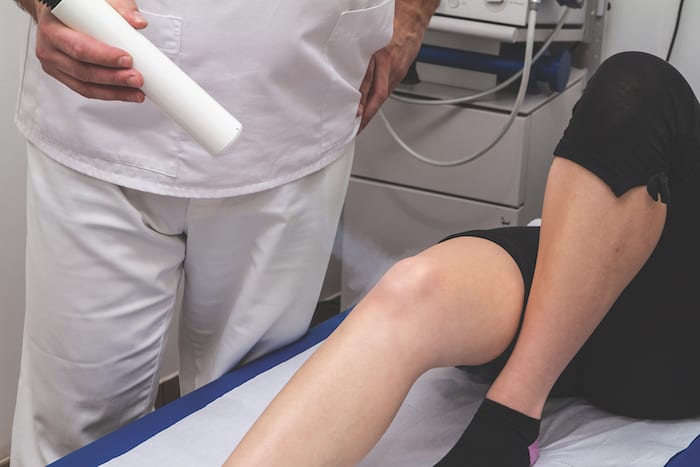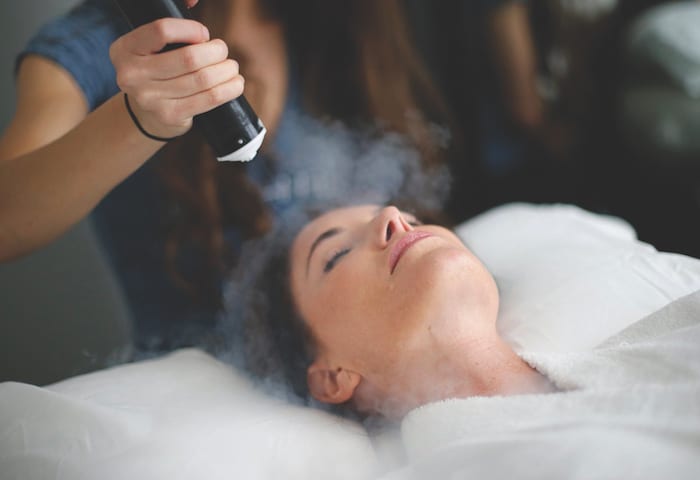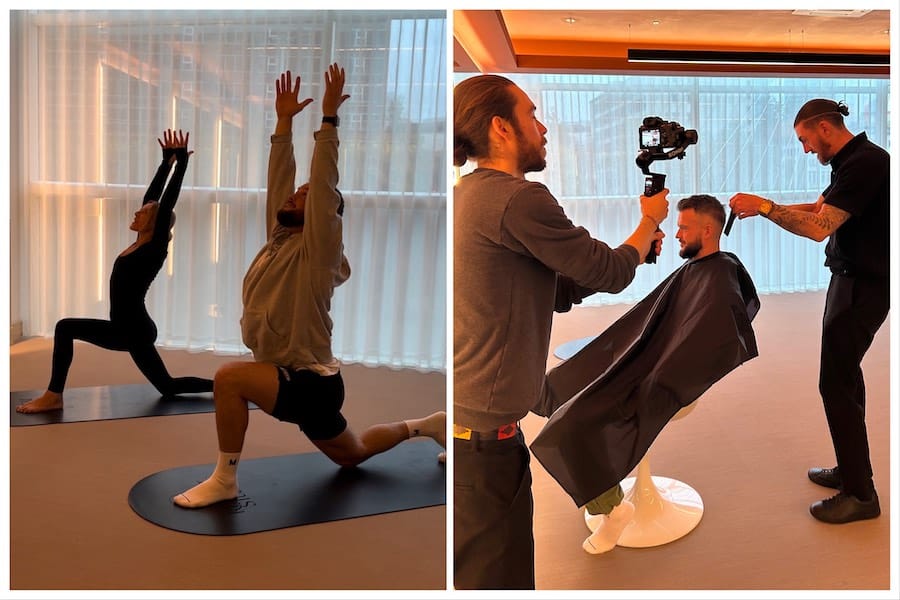Can cryotherapy heal my painful knee injury?
- Written by Mike Strul
- Last updated 8 years ago
- Health & Wellbeing, Sponsored

Cryotherapy is a skin and muscle therapy treatment which uses liquid nitrogen at temperatures up to minus 160 degrees to stimulate and rejuvenate the body.
In the past it has only been available in the form of cryotanks or saunas where your body and mind have to endure a painful and challenging full body exposure to give the skin freezing effects and benefits.
 However, Cryotherapy UK offers all the benefits of cryotherapy in a painless therapy whereby the nitrogen is filtered and pushed through a funnel in the form of an ice cold vapour that is applied to the isolated body part. A trained therapist then gently massages and sculpts the area to encourage lymphatic drainage.
However, Cryotherapy UK offers all the benefits of cryotherapy in a painless therapy whereby the nitrogen is filtered and pushed through a funnel in the form of an ice cold vapour that is applied to the isolated body part. A trained therapist then gently massages and sculpts the area to encourage lymphatic drainage.
The nerves at skin level shrink away allowing a numbing effect, which prevents any discomfort while the skin is effectively frozen for a short period of time.
Many natural biological reactions take place in reaction to the extreme cooling. While the skin continues to feel the freeze, the body is sending signals back and forth to the brain. These messengers tell the brain if there is damage to the tissues or bone.

So was it worth it? The thought of subjecting my body to temperatures of minus 160 frightened the life out of me but the cold air is certainly manageable. It’s a bit like being out in Manchester on a cold winter’s day.
As with all cryotherapy treatments, multiple applications provide better results, as biological reactions are cumulative and become the body’s normal way of showing longer lasting effects.
After three sessions the results were nothing short of amazing. I have more flexibility in my knee and the pain has been reduced dramatically allowing me to restart my spin classes with no after effects.
Originally associated with speeding up athletes’ recovery time after injury, the treatment is also now widely used for a number of things including instant weight loss and cellulite reduction.
It’s also effective for body sculpting and is a natural and non-invasive alternative to liposuction and crash diets. There is also a tightening of the skin due to the increased production of collagen, the reduction of inflammation and or skin conditions
- This article was last updated 8 years ago.
- It was first published on 4 January 2017 and is subject to be updated from time to time. Please refresh or return to see the latest version.
Did we miss something? Let us know: [email protected]
Want to be the first to receive all the latest news stories, what’s on and events from the heart of Manchester? Sign up here.
Manchester is a successful city, but many people suffer. I Love Manchester helps raise awareness and funds to help improve the lives and prospects of people across Greater Manchester – and we can’t do it without your help. So please support us with what you can so we can continue to spread the love. Thank you in advance!
An email you’ll love. Subscribe to our newsletter to get the latest news stories delivered direct to your inbox.
Got a story worth sharing?
What’s the story? We are all ears when it comes to positive news and inspiring stories. You can send story ideas to [email protected]
While we can’t guarantee to publish everything, we will always consider any enquiry or idea that promotes:
- Independent new openings
- Human interest
- Not-for-profit organisations
- Community Interest Companies (CiCs) and projects
- Charities and charitable initiatives
- Affordability and offers saving people over 20%
For anything else, don’t hesitate to get in touch with us about advertorials (from £350+VAT) and advertising opportunities: [email protected]

The group creating a community of care for those living with dementia

Review: Faith Healer at The Kings Arms is ‘a stunningly performed narrative of grief and identity’


Manchester mental health expert shares her top tips to help children through Blue Monday















